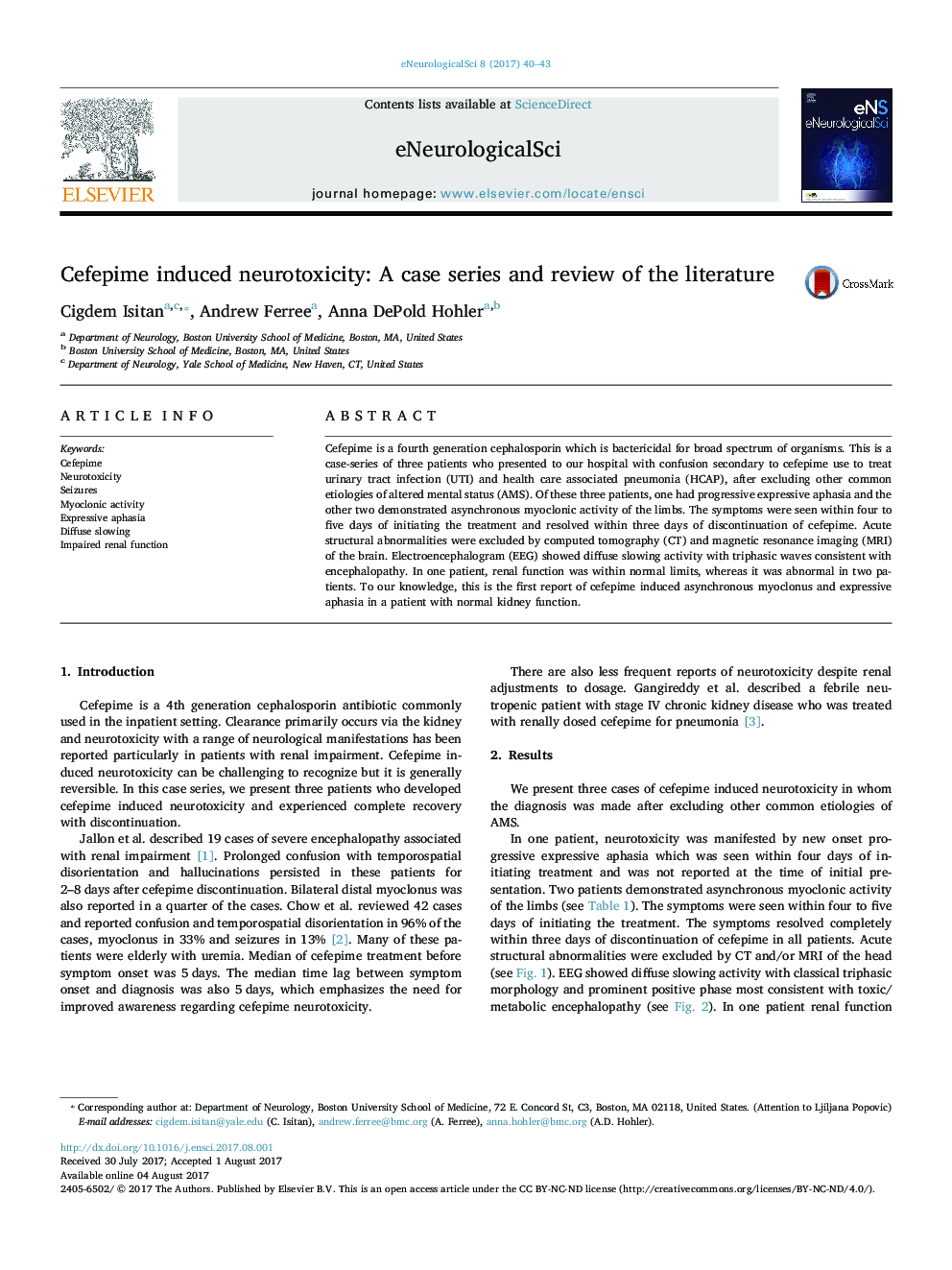| Article ID | Journal | Published Year | Pages | File Type |
|---|---|---|---|---|
| 5627973 | eNeurologicalSci | 2017 | 4 Pages |
â¢Recognizing cefepime neurotoxicity could be challenging in acute care settings.â¢Caution is recommended in patients with renal and hepatic impairments.â¢Patients may present with expressive aphasia and/or myoclonus even with normal kidney function.â¢Fortunately in most cases, neurotoxicity is reversible upon discontinuation of cefepime.
Cefepime is a fourth generation cephalosporin which is bactericidal for broad spectrum of organisms. This is a case-series of three patients who presented to our hospital with confusion secondary to cefepime use to treat urinary tract infection (UTI) and health care associated pneumonia (HCAP), after excluding other common etiologies of altered mental status (AMS). Of these three patients, one had progressive expressive aphasia and the other two demonstrated asynchronous myoclonic activity of the limbs. The symptoms were seen within four to five days of initiating the treatment and resolved within three days of discontinuation of cefepime. Acute structural abnormalities were excluded by computed tomography (CT) and magnetic resonance imaging (MRI) of the brain. Electroencephalogram (EEG) showed diffuse slowing activity with triphasic waves consistent with encephalopathy. In one patient, renal function was within normal limits, whereas it was abnormal in two patients. To our knowledge, this is the first report of cefepime induced asynchronous myoclonus and expressive aphasia in a patient with normal kidney function.
